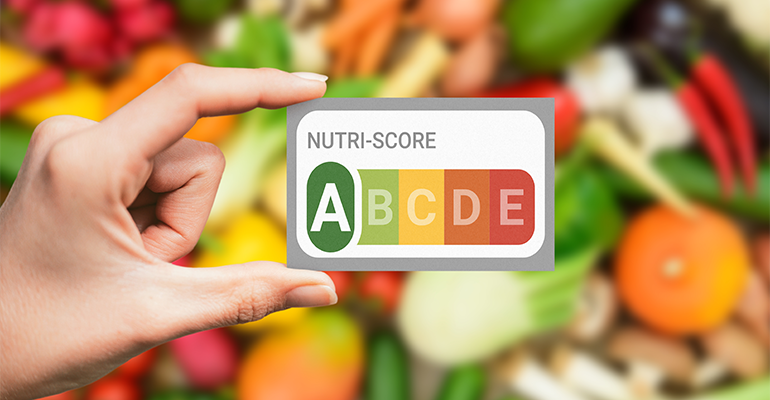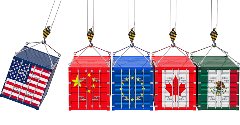News
Indonesia to introduce a front-of-pack nutrition label
27 Nov 2024Indonesia’s Food and Drug Authority (BPOM) has announced plans to introduce a traffic light-style front-of-pack nutrition label called Nutri-Level.

While the Island State of Singapore has already introduced a food and beverage health label policy, a similar move in Indonesia is expected to have significant repercussions in the Asia Pacific region, especially given the fact that the country’s population currently stands at 277 million.
BPOM announced a draft regulation for the new policy in September, seeking to introduce front-of-pack nutritional labelling to indicate the amount of sugar, salt, and fat in any packaged products.
Falling in line with Singaporean regulations
Similar to Singaporean label, the system proposes the adoption of a traffic light warning system, incorporating four warning levels. “A” is dark green and requires that foods carry trace levels of sugar and very low levels of salt and fat, with colourings and no additives.
The other categories are “B” which is light green, “C” which is amber and “D” which is red. Each of these categories can contain progressively higher pre-determined levels of sugar, while category “D” also has no restrictions of additives.
Providing more details on how the implementation of the regulation is likely to unfold, Irene Djalim, manager of regulatory affairs at Asia Pacific law practice Tilleke & Gibbins, clarified that manufacturers must know that sugars also include monosaccharides and disaccharides, but excludes lactose, while liquid milk and plain milk powder are exempt.
“The draft regulation provides Nutri-Level label examples in both full and simplified formats. The simplified format applies to small packages of 30 square centimeters or less, while the full format must be used on other packages,” Djalim said.
Pending regulation applications will have to be amended
While the regulation is still in the draft stage and not expected to be passed until the end of 2024, the proposal outlines that any processed foods that have a pending application with the BPOM once it is passed will have to amend their on-pack labelling within 30 months. For ready-to-drink beverages, liquid content and powdered beverages, that grace period will be 30 months.
The NutriScore food and beverage nutrition label was developed by French researchers and is used on a voluntary basis in many European countries, including France, Belgium, Spain, and the Netherlands.
In Singapore, a similar system was introduced in 2022 as a four-level system known as Nutri-Grade, with level “D” items banned from advertising such products in the media.
In an official statement released at the end of September, Indonesia’s BPOM stated that once the proposal is confirmed, the new regulations would be introduced gradually, and in phases.
“The implementation of the Nutri-Level regulation for processed foods is to be carried out in stages. The first stage will be targeted at ready-to-consume drinks for sugar, salt and fat content that falls between level C and level D. The enforcement of Nutri-Level will also be implemented in line with processed foods determined by BPOM and ready-to-eat processed foods determined by the [Indonesian] Ministry of Health,” the statement read.
Indonesia is likely to take inspiration from Singapore’s implementation
Indonesia’s system is expected to mirror that of Singapore’s, which has been commended by the World Health Organization as helping “to transform food and environments for healthy diets and optimal nutrition,” after being singled out for 2024 WHO Healthy Cities Recognition Award.
In Singapore, the system has been gradually implemented, initially singling out packaged foods and beverages by outlining a minimal level of sugar, salt and additives to comply.
The next level of the Nutri-Grade regulation will target cooking oil, pre-packed salt, sauces and seasonings and instant noodles, in an effort to point consumers to products with lower levels of sodium.
Related news

Future F&B flavours favour exploration and explosive taste profiles
25 Mar 2025
Exploration and experimentation will define the future of flavour, according to Mintel, as consumers seek out taste profiles and textures that offer an adventurous eating experience.
Read more
Partnership plans to scale cultivated meat production
21 Mar 2025
Food technology innovator Ever After Foods (EAF) and multinational food leader Bühler are striving to overcome hurdles to access and accelerate the development of cultivated meat.
Read more
Global consumers enjoy food less and perceive it as less healthy
20 Mar 2025
Enjoyment of food and its perceived healthiness is dwindling among most global populations, according to findings from Gallup and Ando Foundation/Nissin Food Products.
Read more
Seafood set to ‘dethrone’ poultry as protein growth king
19 Mar 2025
Seafood is poised to surpass poultry as the leading contributor to global protein supply growth this year, according to Rabobank’s latest protein outlook.
Read more
Tariff volatility leaves food manufacturers in limbo
11 Mar 2025
Rapid US trade policy shifts and tariff escalations are creating uncertainty for food manufacturers and ingredient suppliers.
Read more
F&B industry hit with fresh greenwashing claims
26 Feb 2025
The food and beverage (F&B) industry is under fresh scrutiny amid claims of greenwashing, with Arla the latest company in the firing line.
Read more
Protein diversification: A massive missed market?
20 Feb 2025
Germany and the UK could be missing out on the massive market for alternative meats and proteins, with one new coalition calling for an end to the “steak-tofu struggle”.
Read more
Have scientists discovered a new tool to measure UPFs?
19 Feb 2025
Researchers have developed a new scoring system and database, compiling over 50,000 food items, of which over 1,000 are classified as ultra-processed.
Read more
China ramps up cultivated meat research with new innovation base
18 Feb 2025
China has opened its first fermentation and cultivated meat research centre in Beijing.
Read more
Most consumers lack trust in AI, but supplement users are ready to embrace the technology
14 Feb 2025
A survey of UK and US consumers found that most supplement users are willing to let AI make decisions on their behalf, but they also demand greater transparency.
Read more